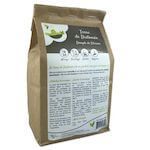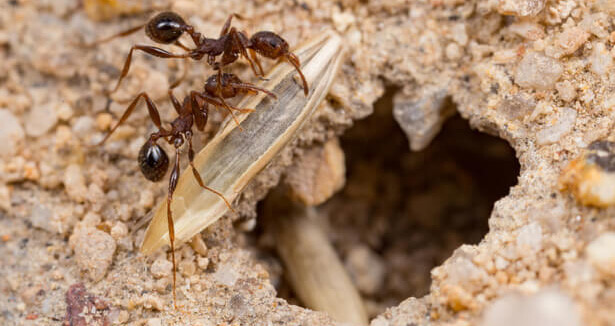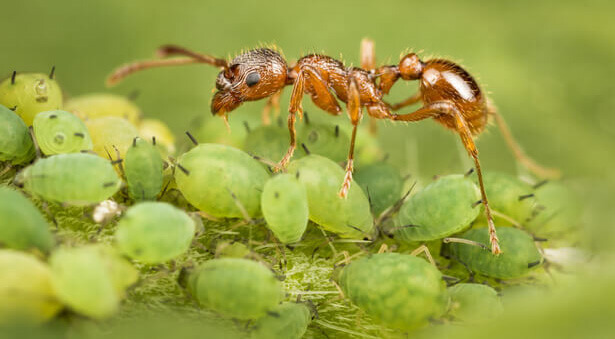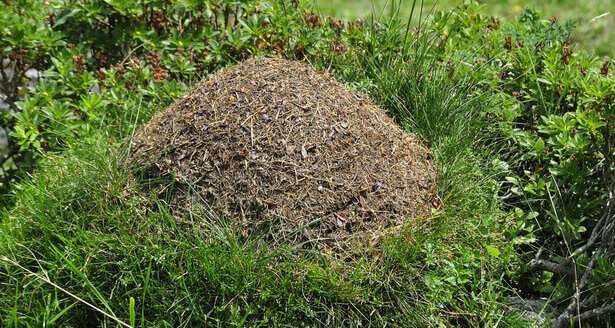[ad_1]
What do ants do in the vegetable garden? The world of ants is simply amazing, especially on a global scale where it is no longer necessary to prove the adaptability of these animals. On the scale of our vegetable gardens, however, we can quickly see that ants, if not always visible, are very present. But what role do they actually play?
From ants in the vegetable garden, this seems quite logical. Every animal has its place in the ecosystem, it doesn’t matter which one. Ants, in this case, are monsters podium for biomasswhich represents 10 to 20% of the total terrestrial biomass with a total of several million billion individuals… Knowing this, It is better to take a closer look to understand what ants are doing in our vegetable gardens..
Ants in the vegetable garden: a question of nutrition
Most ants are omnivore, i.e. that in addition to meat, they will also eat seeds. This diet makes the ants a kind tireless cleanertraveling considerable distances in search of food.
A little seed
In the case of foraging ants seeds for food their role in their dispersion is only beginning to be understood, and is sometimes even used to re-establish certain natural spaces that have been polluted.
Read also: Unusual: ants restore endangered ecosystem?
A little meat
But ants they also consume other insectsregular hunting of live animals such as caterpillars and others, but feeding mostly animal carcasses like those of lumberjackcentipedes and others ground beetles.
A little cultivation
In the vegetable garden, the ants that most affect production will be those that verbatim breed other animals to feed on what they produce. This is the case, for example, for aphids where is flour mills.
Capable not only of defending the insects they breed from breeding aids, ants can also lead their “herd” from one plant to another when food runs out.
What to do if there is an ant nest in the vegetable garden?
In reality, the whole problem lies in resistance of the ant colony, that is, her ability to recover from whatever you put her through to ensure she moves elsewhere. Because yes, ants are stubborn !
There are some tips if you are looking how to get rid of ants at home, but in the case of ants in the vegetable garden it is not necessarily the same story. First of all, consider thatit is not necessarily useful to fight against anthills at any cost.
Take the time to observe the colony and see if intervention is warranted. If you really have to do something…
Treat the symptom
This is not necessarily the most efficient solution, but it has merit in being there. Indeed, if you harass – regularly – or kill pests that they grow for food, there is a good chance that the ants will relocate.
Therefore you can use black soap spray to ensure that aphids or mealybugs cannot remain on the plant. After falling to the ground under the action of black soap, these pests will suffer great losses. Birds, beetles and other lizards will feast on them until the ants come to properly defend them and move them back to the plant.
You just have to start over until the work becomes too much for the ants and they decide to move.
Raise the barrier
Ants are known to use trees of all sizes for aphids to climb and reproduce. Then we see the incessant comings and goings of these tireless workers on the trunk. As a general rule, a simple glue collar placed around the tree is enough to discourage ants from exploiting the plant.
In the vegetable garden, it’s a little more delicate and, currently, it seems that only there diatomaceous earth it has shown real effectiveness in fighting ants in a biological way. Excavated from a quarry, diatomaceous earth is actually a type of sand made up of countless skeletons of microorganisms. Since these skeletons are very sharp in their scales, ants are sensitive to them to the point of dying… They will therefore flee from areas where diatomaceous earth will be scattered, ie. all around your crops.

Diatomaceous earth is a natural product composed of microscopic algae fossils, extracted from quarries without chemical transformation. An excellent natural repellent for protecting the house from flea and ant infections, freeing mattresses from fleas; insecticide for plants… It also perfectly absorbs unpleasant odors (garbage cans, litter, shoes).
To discover at Bébé-au-naturel.com
Article updated
consoGlobe also recommends…
[ad_2]
Source link






Your article helped me a lot, is there any more related content? Thanks!